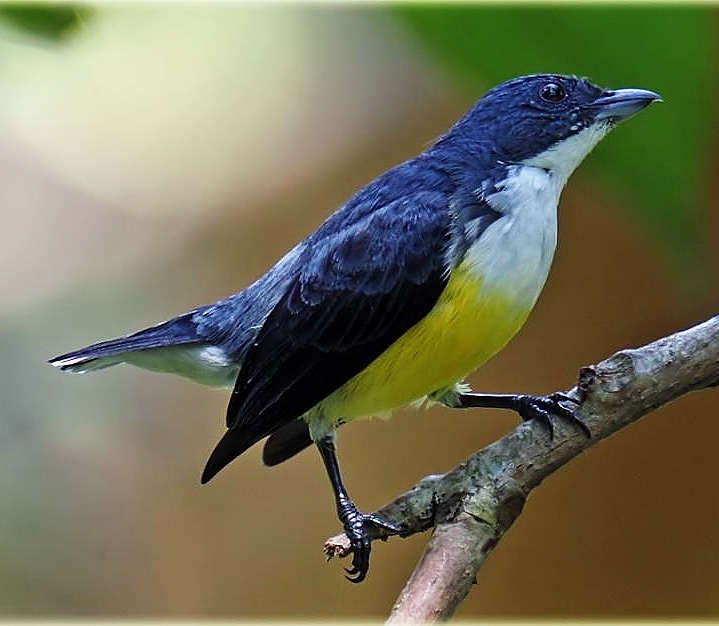 |
| Photo by John Thompson (Internet Bird Collection) |
Common name:
white-throated flowerpecker (en); pica-flores-do-Ceilão (pt); dicée de Ceylan (fr); picaflores cingalés (es); Sri Lanka-blomsterpikker (de)
Taxonomy:
Order Passeriformes
Family Dicaeidae
Range:
This species is endemic to Sri Lanka, where it is confined to the wet zone in the south-western part of the island.
Size:
These birds are 10 cm long and weigh 8-10 g.
Habitat:
The white-throated flowerpecker is found in rainforests from sea level up to an altitude of 2.300 m, being more abundant in lowland forests up to an altitude of 900 m. They can also wander of to secondary habitats bordering rainforests.
Diet:
They feed mostly on nectar, but also eat berries, spiders and insects.
Breeding:
White-throated flowerpeckers nest in a purse-like nest suspended from a tree, where the female lays 2 eggs. There is no information regarding the incubation and fledgling periods.
Conservation:
IUCN status – NT (Near-Threatened)
This species has a relatively large breeding range and is described as common at lower altitudes. The population is suspected to be in decline owing to ongoing habitat destruction, through the extensive clearance and degradation of forests, particularly in the wet zone, by logging, fuel wood collection, conversion to agriculture and tree plantations, gem mining, settlement and fire. Some protected forests continue to be degraded and suffer further fragmentation.







